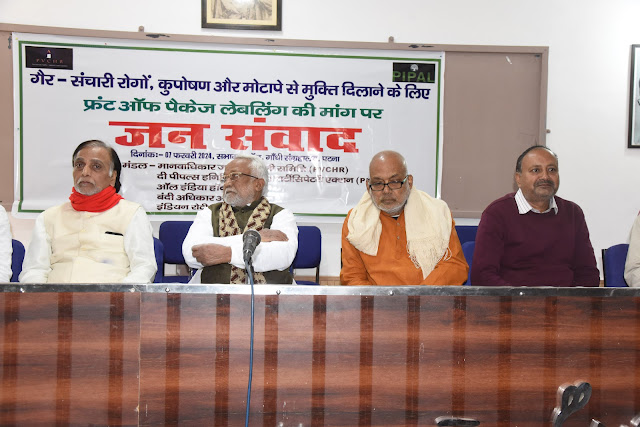Cultivating Change: The Role of Kitchen Gardens in Empowering Musahar Communities (OPED)
- Get link
- X
- Other Apps
In the heartland of community development and nutrition advocacy, a significant stride has been made by Ms. Shruti through her recently authored #OPED published in the Hindi Monthly Magazine, Lucknow Junction. The focus of her insightful piece is the transformative impact of kitchen gardens on the Knowledge, Attitude, and Practices (#KAP) of #Musahar communities, with a particular emphasis on the pivotal role of women.
Changing the KAP of Musahar Communities
Ms. Shruti's article serves as a beacon, guiding readers through the realms of change within Musahar communities. Kitchen gardens, it seems, are more than just plots of land adorned with vegetables; they are catalysts for altering the very fabric of societal practices. Through meticulous research and compassionate storytelling, she unravels the layers of tradition and societal norms that kitchen gardens can reshape.
The Knowledge, Attitude, and Practices (KAP) of Musahar communities are profoundly impacted by the introduction of kitchen gardens. Ms. Shruti deftly navigates the landscape, detailing how access to fresh, homegrown produce not only changes dietary habits but also alters mindsets. The transfer of knowledge within households becomes a shared experience, fostering a sense of unity and common purpose.
Livelihood Support for Nutritional Security
At the core of Ms. Shruti's narrative is the crucial role of kitchen gardens in providing livelihood support. These plots of abundance become sources of sustenance, not just for the body but for the overall well-being of the community. The article highlights how the cultivation of fruits and vegetables becomes a sustainable source of nutrition, contributing significantly to the elimination of malnutrition and hunger.
Resilience for Human Dignity and Social Harmony
In the face of adversity, the humble kitchen garden emerges as a symbol of resilience. Ms. Shruti eloquently articulates how these green spaces become more than just sources of nutrition—they become sanctuaries of human dignity. The empowerment of women, in particular, is a recurring theme, showcasing how their active participation in tending to these gardens translates into an assertion of their rights and capabilities.
A Path Towards Elimination of Torture and Organized Violence
Ms. Shruti's article underscores the profound societal impact of kitchen gardens. By addressing nutritional deficiencies and enhancing economic stability, these gardens become agents of change, contributing significantly to the elimination of torture and organized violence within Musahar communities.
In conclusion, Ms. Shruti's OPED serves as a call to action, urging communities, policymakers, and stakeholders to recognize the potential of kitchen gardens in transforming lives. As we navigate the landscape of community development, it becomes increasingly evident that the cultivation of change often begins in the very gardens that grace our homes.
#PVCHR #JMN #CRY #IRCT #JanMItraNyas #KitchenGarden
- Get link
- X
- Other Apps






Comments
Post a Comment